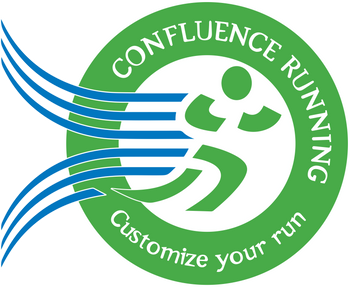Running Tips
How to Choose the Right Shoes for Your Feet | Running Store Near You | Expert Advice
Not sure if your shoes actually fit, why your feet hurt, or how often to replace your sneakers? This quick-start FAQ from Confluence Running’s Dynamic Footwear Specialists covers sizing, comfort, pricing, and wear life so you can choose shoes that feel better and work harder for you.
Navigating Banned Footwear: Compliance in Running and Triathlon Events
In the competitive realms of running and triathlon, governing bodies have instituted specific regulations regarding footwear and equipment to ensure fair play. Ironman, for instance, has released a list of prohibited running shoes for the 2025 season, including models like the Adidas Adizero Prime X and Asics SUPERBLAST, aligning with World Athletics' regulations to limit technological advantages . Similarly, the NCAA has updated its rules to conform with World Athletics standards, specifying acceptable shoe designs and dimensions for track and field competitions . Athletes must stay informed about these regulations to avoid disqualification and ensure compliance across various events.
Why the "No Days Off" Mentality Isn’t Always a Good Idea
The "no days off" mentality might seem like a badge of honor in fitness, but it can lead to overtraining, burnout, and even long-term injury. Social media challenges like run streaks and intense 30-day programs often encourage an all-or-nothing mindset, where success is defined by completion at any cost. This approach can override important body signals such as soreness, fatigue, or pain, ultimately pushing athletes past their limits. By neglecting rest and recovery, athletes risk elevated cortisol levels, adrenal fatigue, and reduced performance—all symptoms of overtraining syndrome. Rest days aren’t a sign of weakness; they’re a critical part of any training plan that prioritizes both short-term progress and long-term health.
A balanced training plan includes intentional recovery, with one or more full rest days per week, and incorporates active recovery or reduced-intensity workouts when needed. Rest days allow the body to repair muscle tissue, replenish energy stores, and restore hormonal balance, all of which are vital for sustained progress. Moreover, listening to your body and adapting your schedule when necessary—such as reducing workout duration or taking an extra day off—can prevent burnout and keep you on track for your goals. Remember, consistency doesn’t mean intensity every day; it means finding a rhythm that allows for both effort and recovery, fostering fitness improvements without compromising your health.
Stay Safe and Be Seen: An Ultimate Guide to Running in Low-Light Conditions
Discover essential tips for staying safe and visible while running in low-light conditions. Learn why visibility matters, how to choose the best reflective and lighting gear, and why investing in high-quality products like the Brooks Run Visible Jacket and Nathan Headlamps is worth it. Stay safe, be seen, and enjoy your runs!
Ultimate Beginner's Guide to Conquering Your First 5K: Training Plan and Tips
Exploring the Benefits and Varieties of Plyometrics
How do plyometrics aid in the adaptation of fitness? - Full Transcript
Long Sleeved vs Short Sleeved Wetsuits: Which One Is Right for You?
Staying Hydrated on the Run: The Importance of Water Stops
The Ultimate Guide to Passing the Police Physical Exam
Racing Shoes: Not Just for the Pros
A guide to the fun, colorful, and sometimes overwhelming world of running's Super Shoes.








